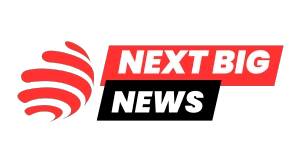The clasped hands of French and German leaders have long embodied the spirit of European unity – most famously in 1984, when François Mitterrand and Helmut Kohl stood hand-in-hand at Verdun in a symbol of reconciliation.
So, when Chancellor Friedrich Merz grasped President Emmanuel Macron’s hand on the steps of the Élysée palace in early May – a handshake that was long, warm, and accompanied by backslapping – it wasn’t just a photo-op.
It was the clearest sign yet that Europe’s most important alliance was back in motion. After years of sputtering and frustration under Olaf Scholz, the Franco-German engine is humming again, and it has a new name: Merzcron.
Since Merz’s election, the two have met six times – most recently with other NATO leaders at The Hague. They will sit down together again on Thursday at the European Council meeting in Brussels.
Their shared agenda: to drive the European Union response on security, Ukraine and Trump-era uncertainties, and shape Europe’s role on the global stage.
Ahead of Wednesday’s NATO summit, Macron and Merz laid out their vision in a joint opinion piece in the Financial Times.
“In these testing times, Germany and France – together with our European and transatlantic friends and allies – stand united and strong, to defend our common values as well as the freedom and security of our citizens,” they wrote.
They outlined plans to boost defense spending – aiming to reach 3.5% of GDP in core military investments – and to deepen cooperation between NATO and the EU, calling for a stronger, more sovereign Europe that is no longer reliant on others for its security. They pledged to ensure Ukraine emerges “prosperous, robust and secure,” and warned that European stability for decades to come hangs in the balance.
The signs are that the powerful ‘Mercron’ or ‘Merkozy’ alliance, portmanteaus derived from the names of former German Chancellor Angela Merkel, Macron and his predecessor Nicholas Sarkozy, is evolving into an equally influential ‘Merzcron.’
The two-day European Council summit now underway in Brussels, hot on the heels of a G7 meeting in Canada and the NATO leaders’ summit in The Hague, is the first of Merz’s chancellorship. It will likely be another demonstration of how strong this union could be.
CNN spoke to two stalwarts of the Franco-German partnership – former French President Francois Hollande, who worked closely with Merkel, and Wolfgang Ischinger, a former German deputy secretary of state once described as Europe’s most connected former diplomat – to assess its significance for Europe and the world.
Under Scholz, the former German chancellor, the Berlin-Paris axis became strained, something that both Ischinger and Hollande noted.
Stefan Seidendorf, director at the Franco-German Institute in Ludwigsburg, Germany, said Scholz spent so much time doing “domestic homework” that he was never able to fully focus on Europe.
The three-way coalition he headed was beset with infighting on domestic and Europe issues and eventually collapsed in November last year, triggering an early election.
However, there were also some interpersonal issues at play. “It was difficult for Macron to get along with this very Protestant, northern German, not very emotional, not into the big symbols of political leadership,” Siedendorf told CNN in a phone interview.
He added that the same went for Scholz, “who found it difficult to get along with this French president living in the palace of Élysée with all the gold and the glitter and the ceremony.”
But neither was Macron and Merz’s friendship a given, considering their different styles. Macron, 47, is Jupiterian and theatrical, hailed by some as a visionary, dismissed by others as a narcissist. Merz, 69, is impulsive, prickly under pressure and occasionally leans into populist bluster.
That said, Ischinger said both leaders “met rather easily – and got their act together.” Speaking about their shared character traits, he said they “love interaction. They enjoy difficult questions. These two have a way of understanding each other – they are open.”
The clearest display of “Merzcron” in action has been around support for Ukraine. Hollande told CNN the duo had already been “effective” on the issue.
Their recent trip to Kyiv, alongside British and Polish leaders Keir Starmer and Donald Tusk, “was a symbol of a new kind of determined getting-together of the major European powers to make progress,” Ischinger said.
Paris has long been more hawkish than Berlin on its support for Ukraine. Macron has been a strong proponent of boots on the ground in the country and has allowed Ukraine to fire French-made long-range missiles deep into Russia.
However, Hollande said, “we’ve seen that Merz’s position is a bit different from that of his predecessor… including on the delivery of missiles capable of reaching Rus
Content adapted by the team from the original source: https://www.cnn.com/2025/06/26/world/france-germany-alliance-merzcron-intl-cmd

















Leave a comment